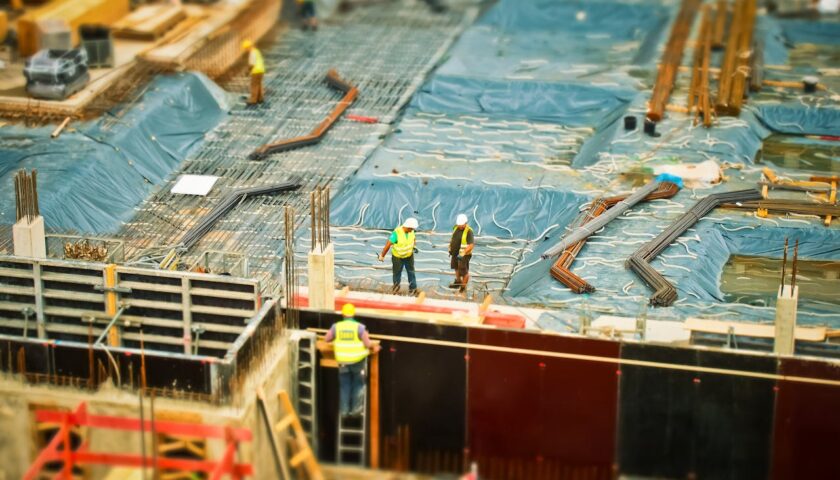Planning a construction project across borders isn’t just about blueprints and budgets—it’s about people, places, and policies, all moving together in sync. For an international construction company, getting it right takes more than technical skills. Each phase of a project in global construction must run smoothly, no matter the time zone or language spoken on-site.
Meeting Regulations Across Multiple Countries
Each country comes with its own rulebook, and skipping a page can cost big. Whether it’s environmental approvals, labor permits, or safety codes, staying on top of these rules is not optional. Project managers working in global construction have to dig into national regulations and often coordinate with legal advisors to make sure everything aligns before a shovel hits the ground. Missing a compliance step can delay the project or shut it down completely.
In international construction, laws change fast, and what worked last year in one region may not fly in another. Experienced teams build time into the schedule just to stay ahead of legal shifts. It’s not just about checking boxes—understanding local law protects workers, secures contracts, and keeps everything on track. Getting it wrong? That’s not a risk worth taking.
Coordinating Teams and Partners Globally
Bringing together architects in Germany, engineers in Canada, and contractors in South Africa sounds exciting—until deadlines and communication gaps start piling up. To stay aligned, international construction companies use centralized tools and real-time updates that keep everyone on the same page. The right digital platform makes sure no one is out of the loop.
Still, it’s more than just software. Time zones, languages, and even workweek differences require human coordination. A well-run project doesn’t just hand out schedules—it adapts. Success depends on local leads who understand the pulse of each region and global managers who see the whole picture. It’s teamwork stretched across the planet.
Managing Risks in International Markets
Working across borders means taking on new risks—currency shifts, unstable governments, changing trade policies. A minor change in one country’s import rules can delay shipments and strain budgets. For global construction firms, identifying and preparing for these risks starts early and never stops.
Good planning means having contingency plans stacked and ready. Whether it’s setting up multiple suppliers or locking in material costs ahead of time, every international construction company needs backup strategies. Staying flexible and alert helps avoid surprises that slow things down or drive costs up unexpectedly.
Allocating Resources Across Worldwide Projects
Juggling crews, materials, and machinery in five countries at once isn’t just logistics—it’s a balancing act. Project managers need to know where everything is, how fast it’s moving, and what it costs at any moment. They can’t afford to park a crane in one country if it’s urgently needed in another.
Efficiency in global construction depends on sharp forecasting. It’s not just about sending equipment from one project to another, but anticipating delays, planning shipping around customs, and adjusting plans mid-project. Every shift in demand or supply must ripple across the system without throwing everything off track.
Keeping Standards Uniform in Different Regions
A building in Dubai should meet the same safety and performance benchmarks as one in Toronto—easier said than done. Local suppliers, codes, and construction styles can vary widely. International construction companies must create clear internal standards that everyone follows, even while respecting local practices.
Maintaining consistency doesn’t mean forcing one approach everywhere. It means guiding teams with a shared framework, offering training when needed, and constantly checking in. High quality isn’t something you assume—it’s something you build into every part of the process. Every job site, no matter the country, reflects the company’s reputation.
Understanding Cultural Factors in Global Construction
Workplace culture goes far beyond the breakroom. How teams communicate, make decisions, and even resolve conflict varies across regions. A construction manager in Tokyo might expect formality and consensus, while a site lead in São Paulo leans toward fast decisions and open debate.
Understanding these dynamics helps avoid missteps. An international construction company that respects local culture earns trust faster and works more smoothly with regional crews. This kind of awareness can turn friction into flow and keeps operations respectful, efficient, and on schedule.
Maintaining Quality at Every Project Stage
Quality starts at the blueprint and follows through to the final inspection. It’s not just about materials—it’s about how each task is completed, checked, and documented. For international construction companies, maintaining that level of care across oceans and borders takes detailed planning and constant oversight.
That means setting clear expectations, using real-time quality tracking, and running independent audits where needed. Every stage—from excavation to final fittings—should meet the same high standard, no matter where the project lands. Clients expect reliability, and that’s exactly what top global construction teams deliver.
